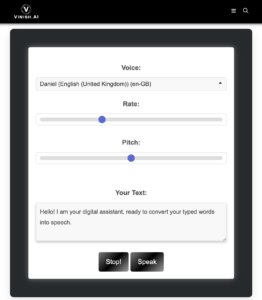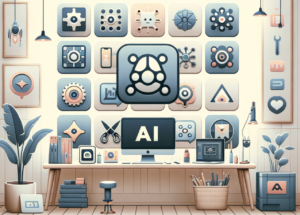Whether you’re just starting out on your programming journey or thinking about learning to code, one of the best ways to ease into it is by following some top programming blogs aimed at beginners. Jumpstarting your education with easy-to-understand tutorials, sample code, and insights from expert bloggers can help demystify the process and make those first coding steps feel less daunting.
In this article, I’ll share my top 10 recommendations for blogs that are excellent resources for complete beginners. All of these sites have large libraries of free content, frequently updated posts, and welcoming communities – making them fun and low-pressure places to start absorbing programming concepts. By following a few of these blogs regularly, you’ll gain knowledge at your own pace while feeling supported in your learning process.
The Definitive List: 10 Programming Resources for New Coders
W3Schools is hands-down one of the most beginner-friendly places to start learning how to code. Their tutorial sections on HTML, CSS, JavaScript, SQL, Python, and more break down basics in simple, interactive lessons that you can follow along with. I appreciate that all examples are runnable on their site so you don’t need any software installed.
What I especially like about W3Schools is their references – one-page guides to syntax, selectors, tags, and other language rules. Referring back to these as I code has helped solidify my understanding. They also have exercises and quizzes to reinforce new skills. Overall it’s a great blog for picking up the fundamentals across different programming domains.
Similar to W3Schools in providing a huge catalog of coding tutorials, TutorialsPoint expands on the learning with additional eBooks, video courses, coding tools, and online certifications. Their content spans everything from front-end development and databases to AI/ML, DevOps, and more.
I find their tutorials very clear and step-by-step for grasping core concepts. What I appreciate most is how the blog highlights trending technologies as well as standard programming fare. This helps keep learners’ skills relevant as new tools emerge. It’s been a valuable resource for continuing my education beyond the initial basics.
If you an aspiring or experienced developer looking to expand your technical skills? Then you’ll want to make Vinish.AI a staple resource in your learning journey.
Run by renowned tech expert Vinish Kapoor, this expansive blog covers a wide spectrum of in-demand topics – from database technologies like Oracle and PL/SQL to programming languages such as Python, PHP, and Java. Whether you need intuitive tutorials, troubleshooting solutions, or simply a way to stay on top of industry trends, Vinish.AI has you covered.
What makes Vinish.AI really stand out though is Vinish’s innate ability to present even the most complex subjects in an accessible, step-by-step manner. You won’t feel lost or overwhelmed. Supplementing hands-on code examples are helpful takeaways, ensuring maximum knowledge retention.
Similarly to Fox Infotech, ORCLQA is all about Oracle technologies like SQL, Oracle APEX, JavaScript, and more. Their tutorials cover everything from database basics to building full web apps.
What stands out for me is how the blog contextualizes code samples within realistic application scenarios. This relates new concepts to real-world uses. ORCLQA also emphasizes testing best practices throughout – something I think all beginner programmers should learn early on.
With the growing role of Oracle and other enterprise tools in many industries and businesses, their specialized content is a great option for tailoring skills to different career paths as well. Overall it’s one of the best blogs for those interested in Oracle.
For a blog dedicated solely to front-end development, CSS-Tricks is unequaled. Chris Coyier and the team put out tutorials, guides, and examples covering all manner of HTML, CSS, and JavaScript topics.
I appreciate how they break down even basic concepts in such depth. Their articles really get to the heart of “why” certain techniques are important. This has helped solidify my understanding beyond just surface implementation. The attention to visual design and animation is also a great inspiration for upping my front-end skills.
While focused on style and presentation, CSS-Tricks content progressively builds an implicit foundation in code structure and best practices that would serve any beginner programmer well. Even for complete novices, it’s an engaging way to start seeing how front-end development works behind the scenes.
Free Code Camp is one of the best resources for learning full-stack web development for free. Their curriculum takes learners from basic HTML and CSS through to building APIs and deploying apps through hands-on projects. What sets the blog apart is providing this full path all in one place.
Having the structured curriculum guiding my learning with clear goals made me feel more confident experimenting on my own. I appreciated being able to self-pace through foundations before moving to more advanced topics. Their forums were also very welcoming for asking questions when stuck.
For any beginner aiming to become a full-fledged coder with marketable skills, Free Code Camp delivers an amazing free course offering many programming blogs can’t match. It’s been invaluable for rounding out my core developer competencies.
Similar to Free Code Camp, Codecademy takes a project-based learning approach through interactive tutorials. Their content spans web development, data science, and other popular tech fields. Users can experiment with sample code and get immediate feedback.
What stood out most to me was the fun, console game-like interface that made practice feel less intimidating. It took the pressure off needing to memorize everything perfectly the first time. Codecademy’s explanations of syntax and programming concepts were very digestible too.
Overall it’s an engaging, self-paced way to experiment with different languages hands-on from the start. For complete coding newbies, that kind of confidence-building is invaluable. Codecademy is undoubtedly one of the best starting points.
For Python programming specifically, Real Python has become one of my go-to blog resources. Articles cover everything from fundamentals to advanced topics like data science and automation.
Unlike some other general programming blogs, Real Python assumes readers have programming experience so explanations dive deep quickly. I appreciate this level of technical rigor. What’s more, their projects tutorial series are incredibly inspiring.
By following along, I gained hands-on skills while learning best practices. Real Python has really helped me become a well-rounded Python developer beyond just syntax. It may be more suitable once basic coding familiarity exists but is an invaluable upskilling blog.
As another specialist blog, SitePoint focuses predominately on front-end development like HTML, CSS, JavaScript, and frameworks/libraries. What sets the blog apart for beginners is its mix of introductory and advanced content.
For those new to coding, useful primers on core concepts like responsive design and accessibility sit alongside more technical deep dives. This breadth of coverage allows learning to progress at your own pace. SitePoint is also generous with sample code files for following tutorials locally which aids comprehension.
Overall, it’s been a go-to reference not just for picking up fundamentals but troubleshooting syntax as my skills have grown. SitePoint supports frontend coders at all experience levels through clear explanations and plenty of resources.
While primarily aimed at designers, for beginner programmers Smashing Magazine offers an inspired perspective on visual development principles, UX strategies, and trends across web technologies. Its tutorial format breaks down complex ideas effortlessly.
Even being less code-focused, Smashing helped reinforce why visual best practices like semantics, scaffolding, and layout theory matter for building crafted experiences. I especially appreciate discussions on accessibility – an oft-overlooked area critical for inclusive product development.
More so than simply coding syntax, Smashing has contributed broader appreciation for design systems and crafting elegant interfaces. For any programmer interested in visual impact or UX skills, it’s undoubtedly worth following as learning progresses past initial syntax acquisition.
Getting Started is the Hardest Part
In summary, these top 10 programming blogs cover a range of domains from full-stack web development to languages like Python, Oracle technologies, and front-end mastery. What they all share is approachable, project-based content for complete beginners to confidently take their first steps in learning to code.
With so much free material and supportive communities, finding your footing has never been easier. Dive into a few to experiment hands-on, learn at your own pace, and gain perspective across disciplines. Programming is one of the most rewarding skills to pick up – so don’t be afraid to just start with these great blogs as your guide. Top programming blogs for beginners



